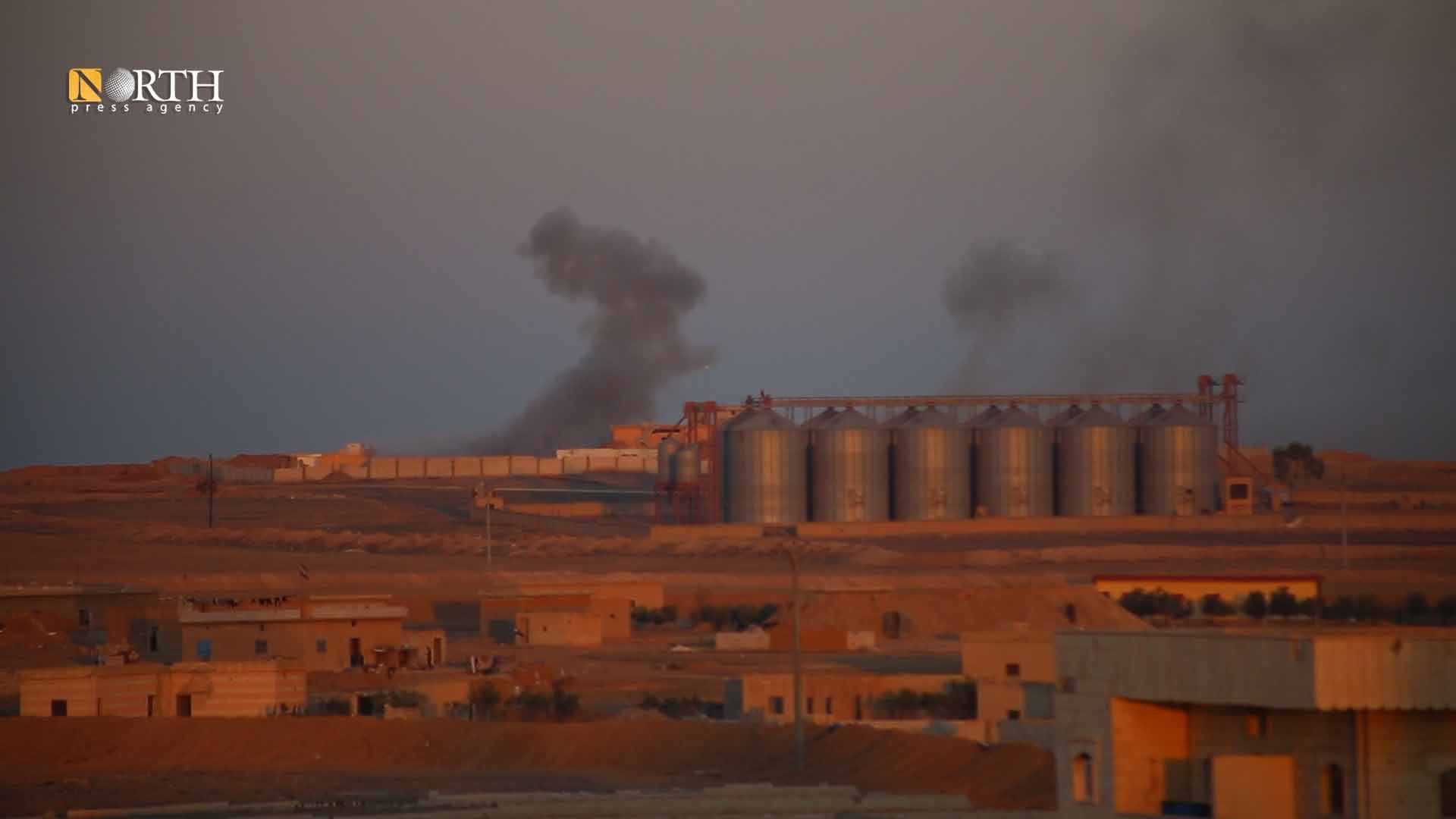Ain Isa, Syria (North Press) – Marwan Mustafa, a 40-year-old farmer of Tel Abyad countryside, north of Raqqa, northern Syria, failed to provide workers to cultivate his agricultural land as the previous ones who worked for him left the job due to the Turkish shells dropped only 3 km from their village.
Fears of the Turkish shelling on the village prevents Mustafa to cultivate his land like every year. “This was my only source of income. Now, I have got nothing,” he told North Press.
Mustafa, who is from the western countryside of the Turkish-controlled city of Tel Abyad, used to employ 50 workers to cultivate a space of 400 acres he has. They used to grow beans. Now, Mustafa found no alterative workers because they are all afraid of the Turkish shelling, he said.
The shelling launched by the Turkish forces and the affiliated Syrian opposition factions against villages of Tel Abyad deny people to sow their agricultural lands compelling them lose their main source of income.
The Turkish shelling drive panic workers away from the land. Owners of the lands often find difficulty to secure labors who accept working in fields and farms located on the contact lines, Mustafa added.
He pointed out that the Turkish forces target every farmer who gets close to his land situated on the contact line. They not even kill farmers, but also the shepherds and even the cattle. Turkey considers the contact line a military zone and prohibits residents to come close to it.
Ain Isa and Tel Abyad are repeatedly under bombardment since the Turkish-backed Syrian armed opposition factions controlled them in late 2019.
Mustafa al-Abd, a 60-year-old farmer of al-Hisha village, 13 km east of Ain Isa, is concerned that shells targeted from Turkish forces-held areas or those controlled by the Syrian factions would drop on his agricultural lands and spoil what he had strived to sow.
“Farmers struggle to provide agricultural supplies to be able to sow the lands and then leave it to destiny not knowing if the agricultural season will succeed or will be damaged by bombardments, which if did, would burn the crops and shatter every hope,” al-Abd added.
Although there are military points of the Syrian government forces and the Russian forces in the area, yet the Turkish shelling still targets only civilians’ houses and agricultural lands.
Large swaths of productive agricultural lands, which were once the main source of income for the people of Ain Isa and Tel Abyad, are now arid as landlords left them fleeing the Turkish bombardment.
Tens of thousands of people fled, leaving behind belongings and properties which members of the Syrian opposition factions seized.
The people are now displaced in squatter camps waiting for the unknown.
“Hundreds of hectares of agricultural lands located on the contact lines between the Syrian Democratic Forces (SDF) and the Turkish-backed opposition factions remain uncultivated due to random bombardment,” Abdullah al-Khalil, co-chair of the Agricultural Directorate in Tel Abyad, said.
Approximately, 2,500 hectares of land have turned arid since the Turkish forces invaded Tel Abyad city in late 2019, in addition to the agricultural lands on the Syrian-Turkish border which are permanently under attack, al-Khalil said.
Al-Khalil said around 20 villages in the countryside of Ain Isa and Tel Abyad, where the most productive lands locate, remain unharvested. The lands are fertile given they situate on the “fertile crescent” and used to produce plenty crops of wheat and barley every year.
Al-Khalil noted that leaving such vast swaths of agricultural lands will have a significant negative impact on the region’s economy.
“Wheat crops produced in this region contributed largely to provide bread for the people and fodder, barley and bran, for the cattle,” al-Khalil concluded.

